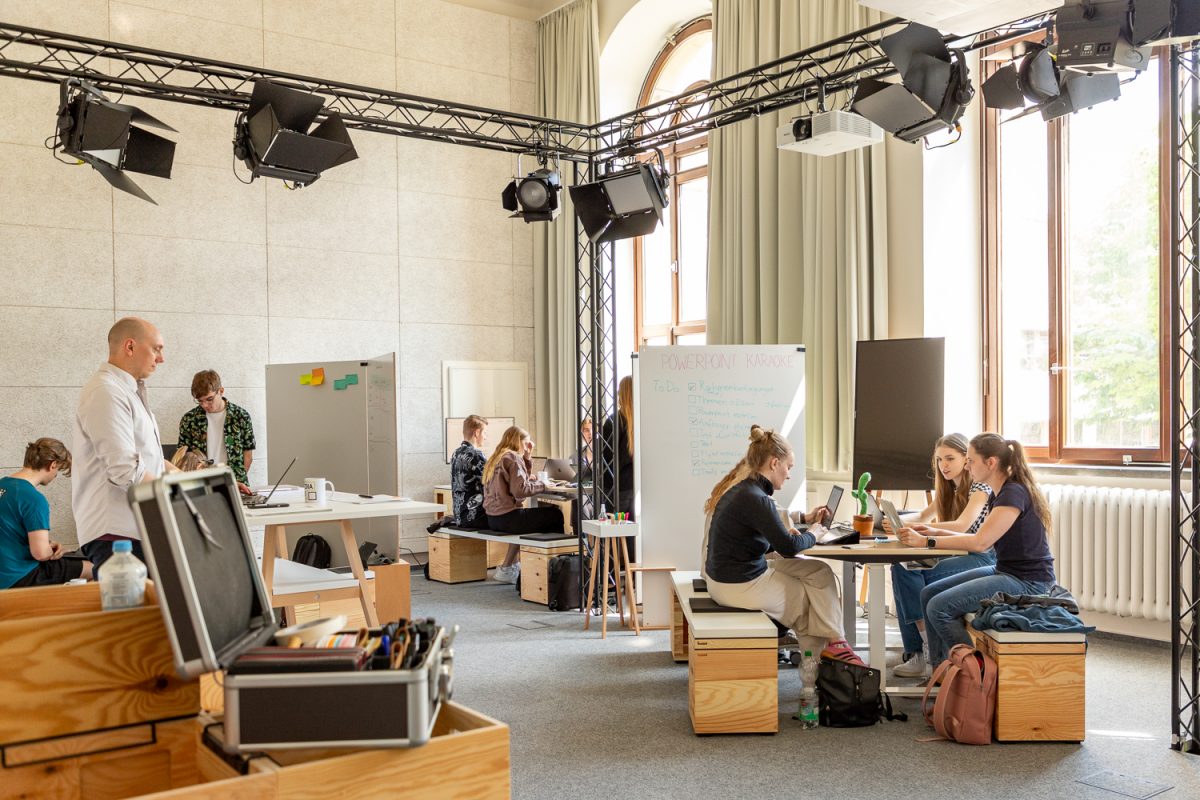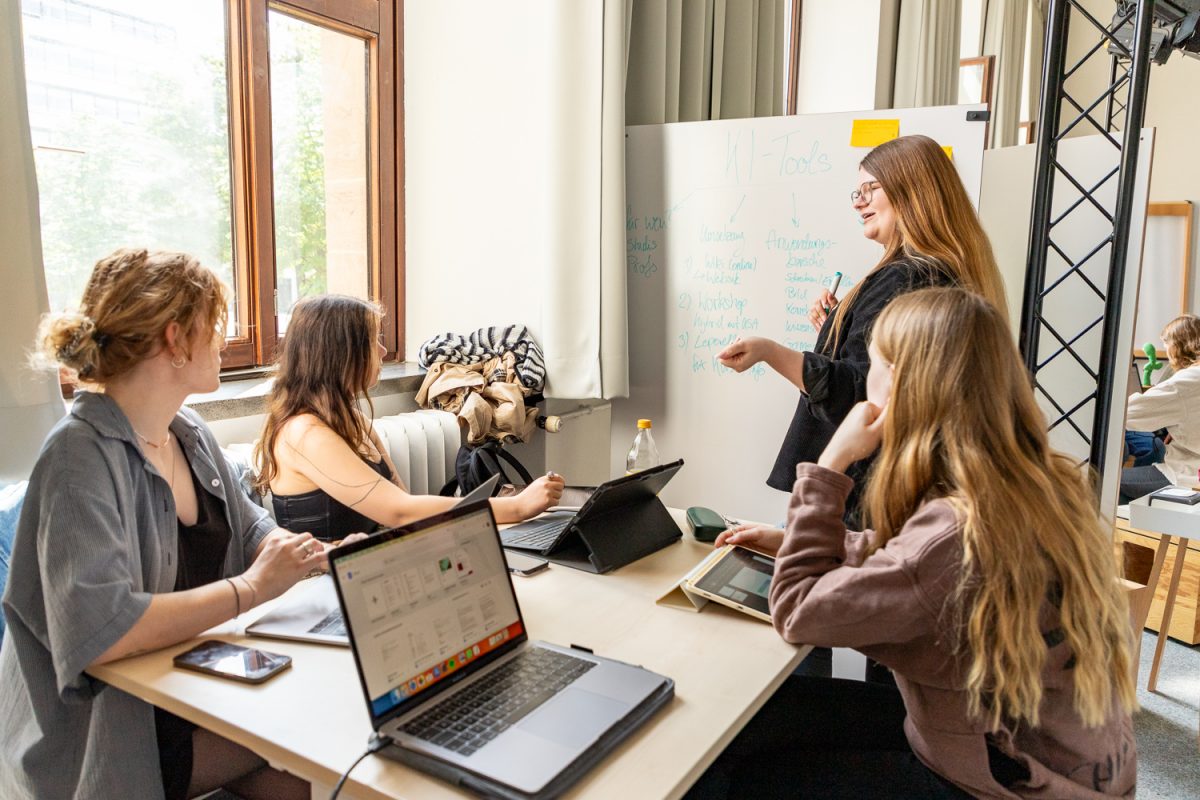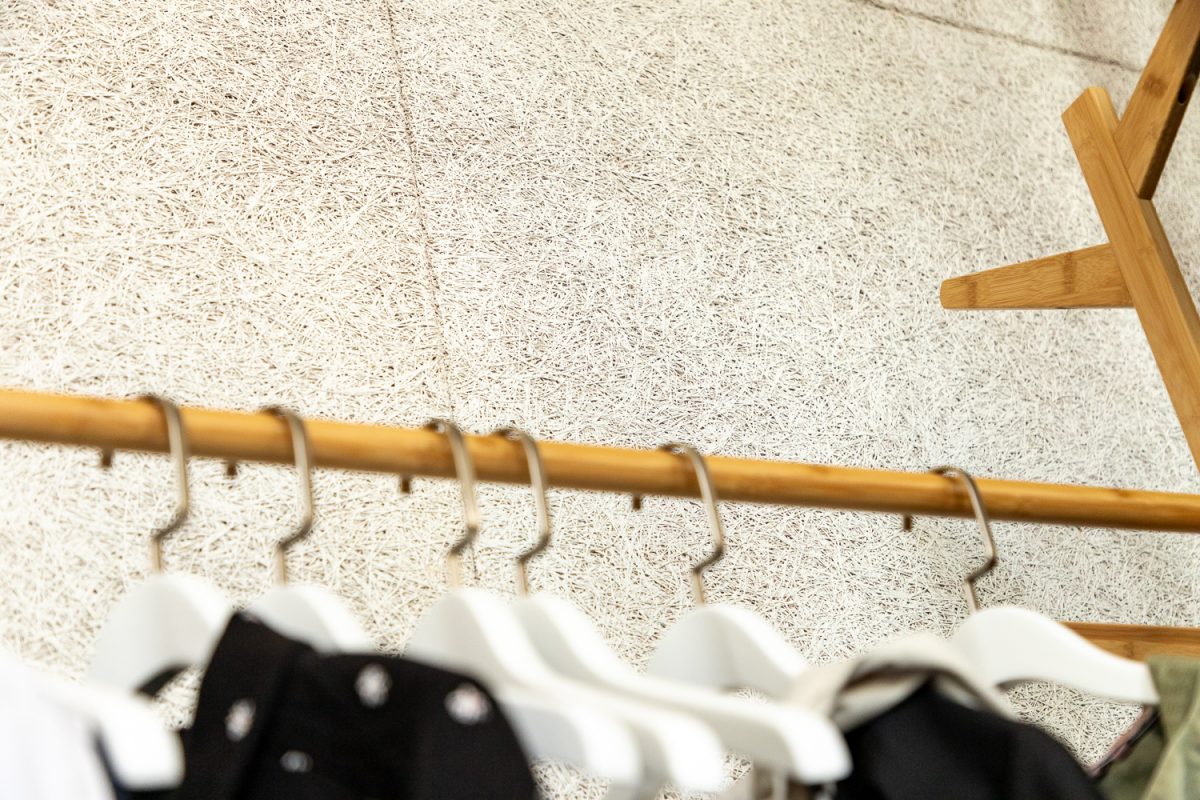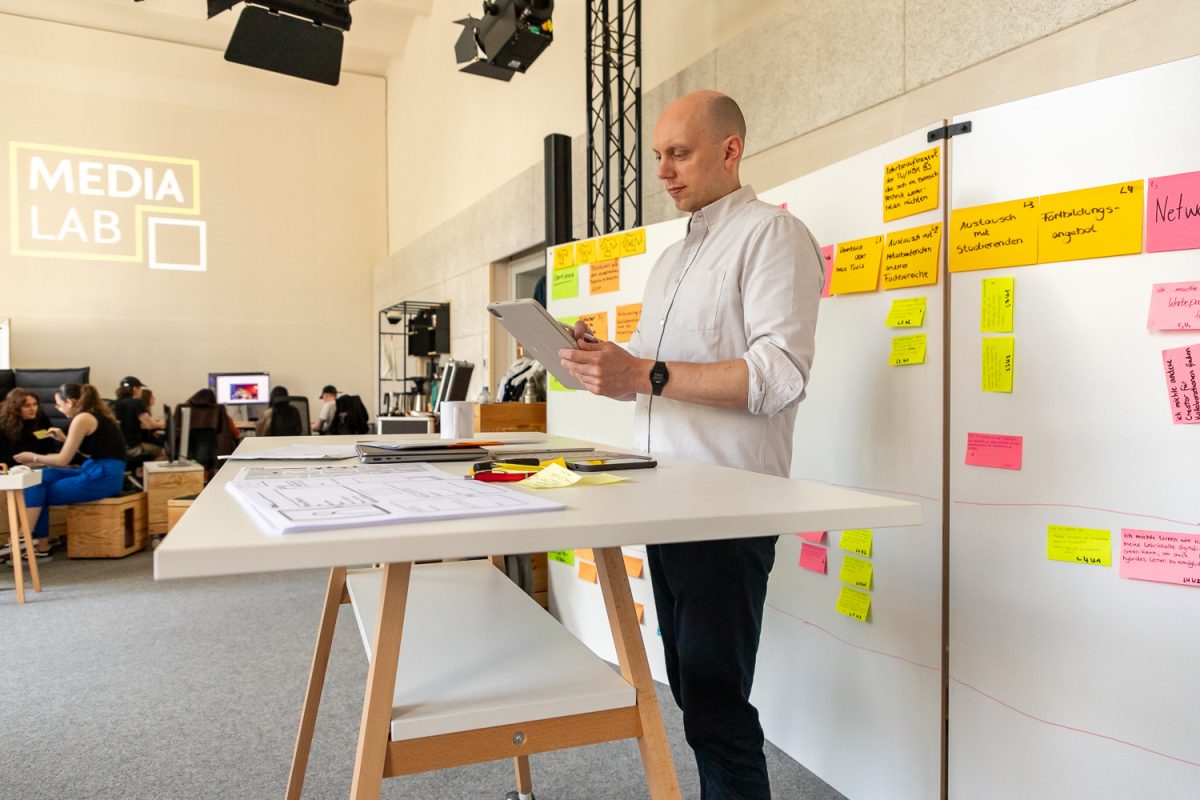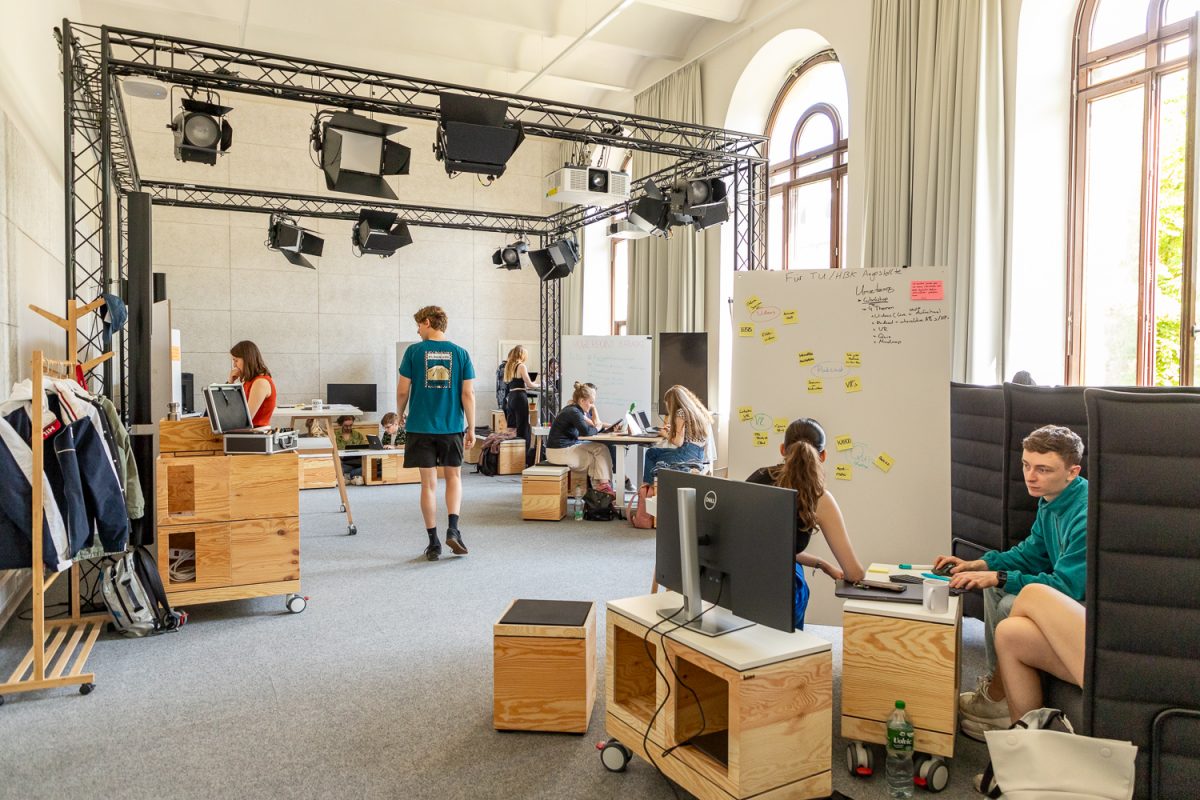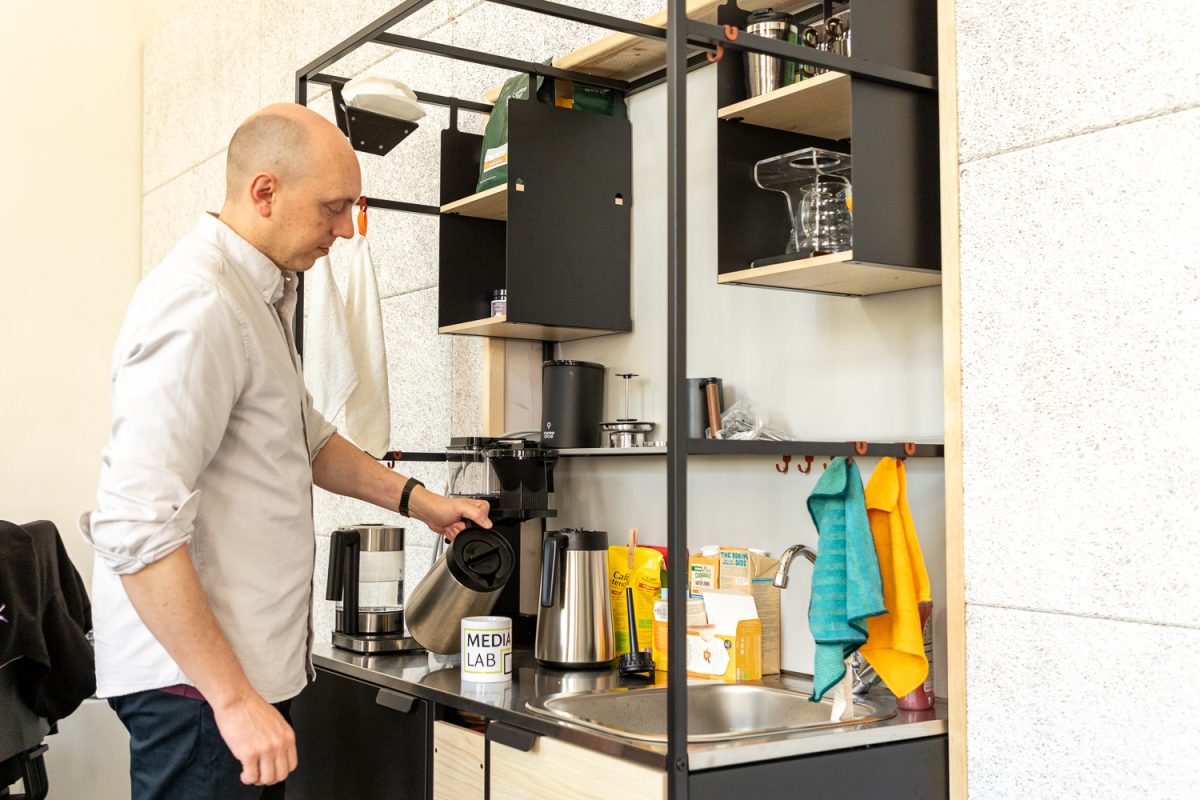For powerful media-supported teaching Media Lab: Multifunctional, digital and skills-orientated
The new Media Lab is located in the centre of Technische Universität Braunschweig. A flexible experimental space in the Historic Main Building with a magnificent view of the university square. In future, the Media Lab will be used to test the latest media technologies and products on the market, as well as to test and develop technology-supported teaching and new forms of communication with teaching staff and students. The best practices will then be made available to teaching staff to make teaching more skills-based and successful. But it is not just the Media Lab that is breaking new ground; the redesign of the space is also an experiment that incorporates new measures for greater sustainability.
As soon as you enter, you realise that everything is mobile, flexible and multifunctional: 50 wooden blocks, tables and shelves on wheels. Everything can be easily rearranged and moved around. In no time at all, different event scenarios can be created, such as design thinking workshops or hybrid lectures. It is not only the furniture that makes the space flexible, but also the highly configurable technology that is mounted on the trusses. This means it can be quickly and easily converted for new things that are not yet on the market. But old features, such as the high vaulted ceiling, have been retained. There was also a strong emphasis on sustainable materials. One wall was completely plastered in clay. Sensors built into the wall can be used to test whether the clay plaster has a positive effect on the indoor climate, and could therefore be of interest for other renovations at the university.
Multifunctional use
Acoustic panels on the walls and carpets ensure good room acoustics, making the lab multifunctional as both a seminar room and an office space. Much was realised in-house: In addition to the Facilities Management, two institutes of Architecture are involved. The Institute for Building Climatology and Energy of Architecture (IBEA) and the Institute of History and Theory of Architecture and the City (GTAS).
“We started looking around in 2022,” reports Product Owner Dr. Stefan Böhme. “We didn’t just look at the media labs and the trends and technologies in teaching in Germany, but also around the world. For example, we are in close contact with international universities such as the University of Rhode Island.”
Test operation has started
Test operations have already begun in the summer semester with small and large trial events. “The use of media in teaching is becoming increasingly important and complex,” says Böhme. “That’s why we want to systematically build up media competence at the university. Not every lecturer can do this alone. The Media Lab team takes a focused and systematic approach to media and then decides which technology to introduce or test first in their lab. “For example, we bought an AI-controlled live streaming camera for hybrid events. Among other things, it follows the movements of the lecturers in their courses. This makes it easier to record courses, as lecturers can move freely around the lecture hall. The integration of virtual reality (VR) or augmented reality (AR) also offers many great opportunities for immersive learning, which we will be testing in our lab and then presenting to the university.”
Strengthening media competence
The Media Lab team’s tasks also include advising lecturers, providing content and offering training workshops. “We also deal with issues such as how AI is developing in teaching and what is legally allowed in hybrid teaching. We are also open to all requests, ideas and needs. We don’t have an annual plan, so we can be flexible. We are happy when lecturers contact us,” says Stefan Böhme. During the summer semester, the team has already conducted interviews with students and asked them what media education topics they are interested in. “Our goal is to improve media competence at TU Braunschweig and to work together with lecturers and students on media didactics and the safe use of media technology. Here in the Media Lab we have the ideal infrastructure for this.”
Opening festival in November
November is when things really get going. The kick-off will be a joint festival with the University of Rhode Island on 20 and 21 November for students, teaching staff and employees. By then, the University’s own social media channel and website will also be online.
The Media Lab was set up on behalf of the Executive Board and is initially being funded for two years by the State of Lower Saxony and the Study Quality Fund. Further financial support comes from TU Braunschweig’s Seed Funding and a private donor. The team currently consists of five people.

